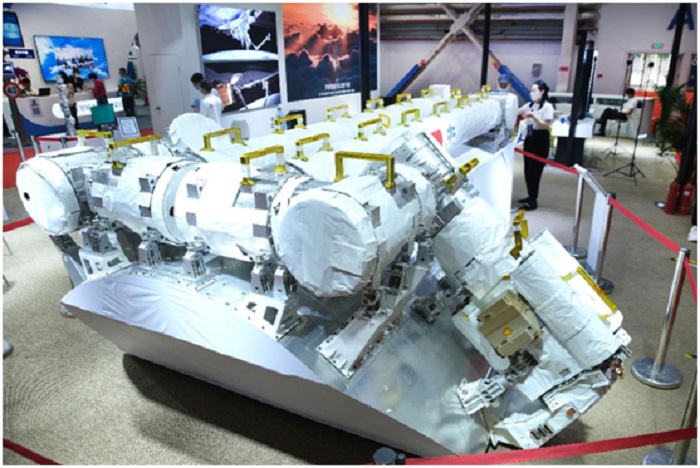



Constantly evolving in terms of form and function, robots are altering people’s mode of production and lifestyles and embracing broad prospects in China.
The 2021 World Robot Conference held in Beijing in September this year has gathered a wide variety of robots, including a giant robotic arm designed for space station that has a large load bearing capacity and can transfer astronauts in a wide range, an intelligent robot that can carry out tasks such as automatic sorting, identification and assembly, a medical robot that is able to perform precise operations under remote control and conduct minimally invasive surgery, and an intelligent fire-fighting robot that can work continuously in high temperatures of 1,000 degrees Celsius.
Achievements in the research and development (R&D), production and application of robots reflect a country’s strength in sci-tech innovation and high-end manufacturing.
Industrial robots have unique advantages in modular, repetitive and precise production and can be applied in low-temperature, high-temperature, toxic and other dangerous environments, not only improving production efficiency and lowering labor costs, but pushing manufacturing toward a higher level of informatization and intelligentization.
In recent years, industrial robots have been widely adopted in 129 industries of 47 major categories in China, witnessing a rapid increase in market size in the country.
China’s production of industrial robots grew by 63.9 percent year on year during the first eight months of the year. The industry has become an epitome of the faster digital and intelligent transformation of Chinese manufacturing companies.
Besides manufacturing, robots have also played an increasingly important role in the service sector.
Service robots are seen giving directions at malls, supermarkets and hotels, taking care of the elderly at people’s homes, assisting with medical diagnosis and treatment, and helping with teaching and learning.
More and more robots have been applied to scenarios including medical and health care, assistance for the elderly and people with disabilities, as well as education and entertainment in recent years, bringing better services and experiences to users while pushing back the boundaries of human imagination.
Since the outbreak of the COVID-19 pandemic, the advantages of contactless delivery robots and disinfection and temperature measuring robots have been brought into full play for epidemic prevention and control, generating more opportunities for the development of service robots.
By better satisfying people’s daily needs, the robotics industry is expected to witness continuous emergence of new business models and forms.
The integration of new-generation information technology into the robotics industry and support from China’s super-large market have contributed significantly to the increasingly important role of robots in boosting the development of various industries in China.
Integration with big data, cloud computing and other new technologies and the application of cutting-edge technologies including machine learning and bionic perception and cognition have made robots become increasingly intelligent, with their abilities to learn and respond to external information continuously enhanced.
At the same time, the huge demand of the Chinese market and rich application scenarios have provided huge opportunities for the development of the robotics industry, and boosted continuous transformation and upgrading, as well as breakthroughs and innovations in the industry.
China’s robotics industry, which began from scratch and is growing stronger, has seen the formation of a relatively complete industrial chain and become an important pillar of the world’s robotics industry.
However, it should be noted that the country’s robotics industry is still at an early stage of development, with further breakthroughs required in many key core technologies.
As the new round of scientific and technological revolution and industrial revolution picks up speed, China’s robotics industry is expected to embrace high-quality development with the country’s efforts to strengthen basic research and technological breakthroughs and continuously expand the breadth and depth of innovation, and inject strong momentum into the transformation from “made in China” to “intelligently manufactured in China”.


The Executive and members of the.


The Acting Director, FCT Directorate of.


President Bola Ahmed Tinubu has been.



Barely a month after resignation of.


An Abuja based Legal Practitioner, Osuagwu.



Convener of Equitable Remedy, Mrs. Magaret.


Contractors handling the contract for city.


Nigerian government may have concluded plans.


The Diplomatic Correspondents Association of Nigeria.


A rights group, “Follow Me Talk.
Leave a Comment